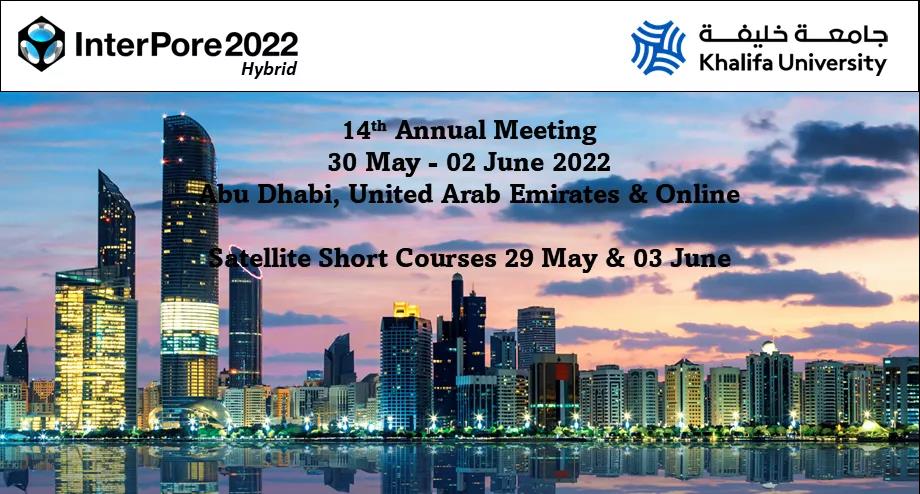Simulation-optimization with machine learning for geothermal reservoir recovery: Current status and future prospects
Abstract view|464|times PDF download|268|times
Abstract
In geothermal reservoir management, combined simulation-optimization is a practical approach to achieve the optimal well placement and operation that maximizes energy recovery and reservoir longevity. The use of machine learning models is often essential to make simulation-optimization computational feasible. Tools from machine learning can be used to construct data-driven and often physics-free approximations of the numerical model response, with computational times often several orders of magnitude smaller than those required by reservoir numerical models. In this short perspective, we explain the background and current status of machine learning based combined simulation-optimization in geothermal reservoir management, and discuss several key issues that will likely form future directions.
Cited as: Rajabi, M. M., Chen, M. Simulation-optimization with machine learning for geothermal reservoir recovery: Current status and future prospects. Advances in Geo-Energy Research, 2022, 6(6): 451-453. https://doi.org/10.46690/ager.2022.06.01
Keywords
Full Text:
PDFReferences
Akın, S., Kok, M. V., Uraz, I. Optimization of well placement geothermal reservoirs using artificial intelligence. Computers & Geosciences, 2010, 36(6): 776-785.
Babaei, M., Norouzi, A. M., Nick, H. M., et al. Optimisation of heat recovery from low-enthalpy aquifers with geological uncertainty using surrogate response surfaces and simple search algorithms. Sustainable Energy Technologies and Assessments, 2022, 49: 101754.
Biagi, J., Agarwal, R., Zhang, Z. Simulation and optimization of enhanced geothermal systems using CO2 as a working fluid. Energy, 2015, 86: 627-637.
Blank, L., Meneses Rioseco, E., Caiazzo, A., et al. Modeling, simulation, and optimization of geothermal energy production from hot sedimentary aquifers. Computational Geosciences, 2021, 25(1): 67-104.
Chen, M., Abdalla, O. A., Izady, A., et al. Development and surrogate-based calibration of a CO2 reservoir model. Journal of Hydrology, 2020, 586: 124798.
Chen, M., Al-Saidi, A., Al-Maktoumi, A., et al. The impact of geological heterogeneity on horizontal well-triplet performance in CO2 -circulated geothermal reservoirs. Advances in Geo-Energy Research, 2022, 6(3): 192-205.
Chen, M., Tompson, A. F., Mellors, R. J., et al. An efficient optimization of well placement and control for a geothermal prospect under geological uncertainty. Applied Energy, 2015, 137: 352-363.
Ijeje, J. J., Gan, Q., Cai, J. Influence of permeability anisotropy on heat transfer and permeability evolution in geothermal reservoir. Advances in Geo-Energy Research, 2019, 3(1): 43-51.
Rajabi, M. M., Chen, M., Bozorgpour, A., et al. Stochastic techno-economic analysis of CO2 -circulated geothermal energy production in a closed reservoir system. Geothermics, 2021, 96: 102202.
Samin, M. Y., Faramarzi, A., Jefferson, I., et al. A hybrid optimisation approach to improve long-term performance of enhanced geothermal system (EGS) reservoirs. Renewable Energy, 2019, 134: 379-389.
Schulte, D. O., Arnold, D., Geiger, S., et al. Multi-objective optimization under uncertainty of geothermal reservoirs using experimental design-based proxy models. Geothermics, 2020, 86: 101792.
Song, G., Song, X., Li, G., et al. An integrated multi-objective optimization method to improve the performance of multilateral-well geothermal system. Renewable Energy, 2021, 172: 1233-1249.
Wang, N., Chang, H., Kong, X., et al. Deep learning based closed-loop optimization of geothermal reservoir production. 2022a, arXiv preprint arXiv: 2204.08987.
Wang, J., Zhao, Z., Liu, G., et al. A robust optimization approach of well placement for doublet in heterogeneous geothermal reservoirs using random forest technique and genetic algorithm. Energy, 2022b, 254: 124427.
DOI: https://doi.org/10.46690/ager.2022.06.01
Refbacks
- There are currently no refbacks.
Copyright (c) 2022 The Author(s)

This work is licensed under a Creative Commons Attribution-NonCommercial-NoDerivatives 4.0 International License.


